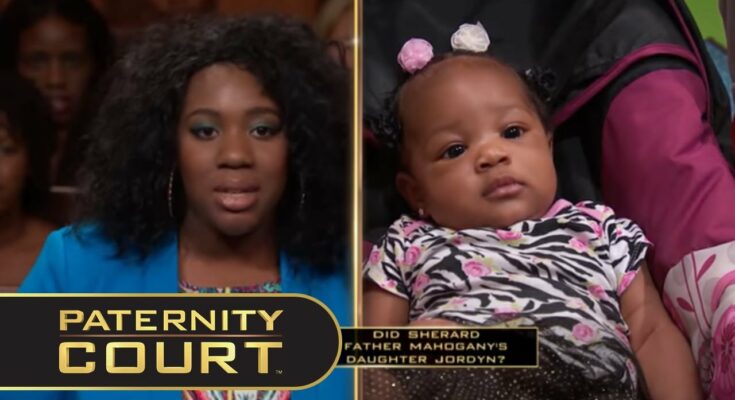In the world of daytime television, few shows capture the raw emotion and real-life drama of family disputes quite like “Paternity Court.” Presided over by the astute and empathetic Judge Lake, the show delves into complex cases of disputed paternity, providing a platform for individuals to seek truth and justice. One such case that perfectly encapsulates the show’s essence is the case of Phillips vs. Gibbes.
The plaintiff, Miss Phillips, found herself in a heart-wrenching situation. She was suing her ex-boyfriend, Mr. Gibbes, for $1000 in child-care expenses. As Judge Lake stated, “Miss Phillips, you are suing your ex-boyfriend for $1000 in child-care expenses you claim he has ignored since denying that he is the father of your two-month-old daughter, Jordyn, whom he refuses to meet.” The pain and frustration in Miss Phillips’ voice were palpable as she sought justice for her daughter.
On the other side of the courtroom stood Mr. Gibbes, a man adamant in his belief that he was not the father of Miss Phillips’ baby. Judge Lake summarized his position, “Mr. Gibbes, you claim that Miss Phillips did not live up to your standards, and has a long history of sexual promiscuity. You believe you are not the father of her baby, and therefore say you owe her nothing.” His words echoed in the silent courtroom, a stark contrast to Miss Phillips’ emotional plea.
Miss Phillips, visibly upset, expressed her disappointment in the situation, “I thought this was gonna be the best situation. I thought that he was actually the one for me, you know?” Her words painted a picture of a woman who had once held hope for their relationship, only to be left heartbroken and alone.
The case took a dramatic turn when Judge Lake questioned Mr. Gibbes about his actions after a spiritual convention. “I have to ask you. Is this true? Did you go home after the spiritual convention and put Miss Phillips out and take her to a hotel?” To which Mr. Gibbes admitted, “I’m not gonna sit here and say that I was just being 100% in the right, because… we were doing tit for tat, a lot of it.” His admission added another layer of complexity to the case, revealing a relationship fraught with issues.
Judge Lake, in her wisdom, summed up the situation, “I think the only thing at this point that we have established is that this relationship was doomed from the start.” Her words resonated in the courtroom, a sobering reminder of the consequences of a failed relationship.
The tension in the courtroom was palpable as everyone awaited the results of the paternity test. Finally, the moment of truth arrived. “When it comes to two-month-old baby Jordyn, Mr. Gibbes, this court has determined that you are her father.” The courtroom erupted in a mix of relief and shock. Despite the tumultuous journey, the truth had finally been revealed.
Judge Lake ended the session with some words of wisdom, “I want you guys to remember that the past can only be the past if you let it stay there. And like I said, there’s nothing in the world more important than your children.” A fitting end to a dramatic episode, reminding everyone of the importance of responsibility and truth.
This case serves as a stark reminder of the complexities and emotional turmoil involved in paternity disputes. It underscores the importance of legal intervention in such cases to ensure the welfare of the child and the responsibilities of the parents are upheld. It also highlights the role of shows like “”Paternity Court” in shedding light on these issues, providing a platform for individuals to seek justice, and educating the public about the importance of responsibility and truth in familial relationships.
The case of Phillips vs. Gibbes is more than just a paternity dispute. It’s a story of broken trust, failed relationships, and the quest for truth. It’s a testament to the strength of a mother’s love and the lengths she will go to ensure the well-being of her child. It’s a narrative that underscores the importance of honesty, communication, and responsibility in relationships.
As viewers, we are left with a sense of closure and a reminder of the importance of truth and responsibility. The case may have been resolved, but its lessons linger, reminding us of the complexities of relationships, the importance of truth, and the lasting impact of our actions on the lives of others.
In the end, “Paternity Court” is more than just a show. It’s a mirror held up to society, reflecting the complexities of human relationships and the importance of truth and responsibility. It’s a platform for voices that often go unheard, a beacon of hope for those seeking justice, and a reminder of the enduring power of truth.



